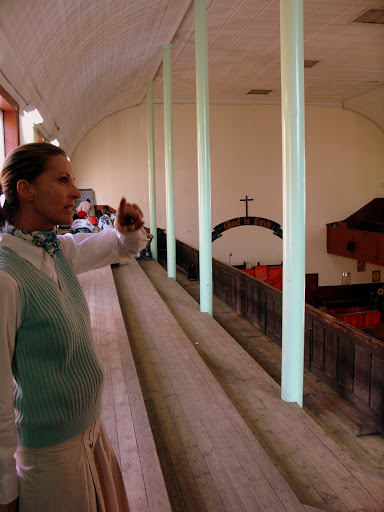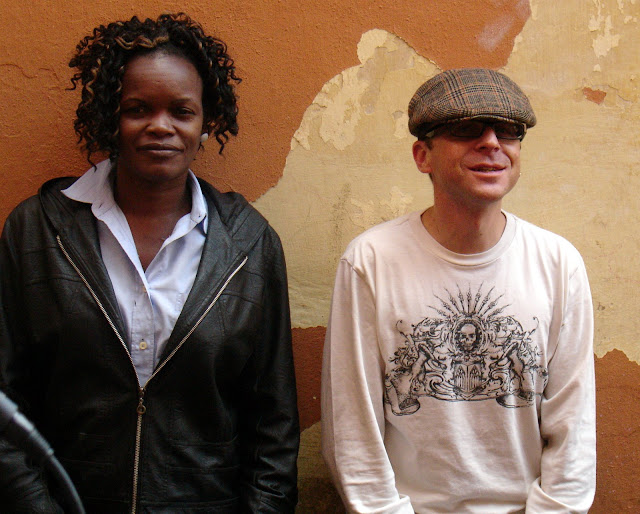



I decided to book a coach tour of Dubrovnik, The Dalmation Coast and Montengro.
Why? Well firstly I’d never done one before and I was a little curious to see what they’re like. Secondly I’d been working hard lately and just felt like a holiday where everything was taken care of and I didn’t have to do too much planning. Thirdly it was pretty good value for money.
The beginning
Land in Croatia and find a representative of the tour company waiting. She leads me to the bus where I’m told that half the group will be arriving on the next flight in 45mins. I climb on board and am greeted by 20 people in varying stages of old age, all waiting patiently for the other 20 to arrive. I do an about-turn and go straight back to the airport bar to taste the local beer and hope that some younger people arrive with the second group.
Two beers later and the rest of the people arrived and they looked at least as old as the other lot. I jumped back on the bus and took my seat, feeling like I may have made a very expensive mistake and tried to work out contingency plans.

For much of the three hour trip to the hotel I was seated next to an elderly couple. He had his nose in a guide book, she fell asleep. Meanwhile we passed some of the most magnificent scenery I’d ever seen. I cursed and took photos. Meanwhile our tour leader Andrew introduced himself and gave a “brief” overview of what we could expect to see, and a bit of a history lesson. I felt like I was watching a documentary on Croatia rather than actually being there in the flesh.
On arrival at the hotel in the tiny village of Drvenik, things began to look up. I spotted a young girl getting off the bus and wondered how the hell I could have missed her earlier. I immediately introduced myself and basically told her that like it or not, I’d be hanging with her for the rest of the tour. Fiona was an Australian living in the UK, and like me, travelling alone. We dropped off our bags and immediately went to the beach with a couple of beers.
The Middle
A short overview of the trip
Day two involved a long bus ride (with obligatory “comfort” stops along the way) to the Krka Valley Nature reserve where we spent most of the day wandering around amongst throngs of tourists. It was pretty, but coming from South Africa I couldn’t help feeling that perhaps I should have stayed at the hotel & explored Drvenik a little.
Most of the tour group were elderly English couples, obsessed with the weather. One morning whilst checking my email one old gent enquired “Oh, you know how to use that thing?” (referring to the PC). I answered yes he immediately asked “Are you checking the weather?”
Day three took us to the Diocletian palace in Split.
Day four we checked out and headed into Bosnia spending a few hours in the town of Mostar. We then headed to Dubrovnik where we checked in to the four star President hotel.
Day five we had a local guide to show us the old part of Dubrovnik. Fiona and I ducked out after five minutes of listening to yet more facts and figures and managed to see the wonderful city on our own. A very wise move in retrospect.
Day six was a “free” day. Most of the people from the tour headed into town to try and see more sights. It was a rainy day and I decided I needed some rest and relaxation so I stayed behind and shared a few drinks with my Aussie friend, and went for an awesome massage. The rest of the people returned in the evening drenched, and full of stories of traffic jams and flooded roads.
Day seven involved yet another long bus ride to Montenegro. I went along, with the thought that if I didn’t go I might miss something amazing. Montenegro was beautiful. More medieval towns. My head was full of Medieval towns at this stage though, and 2 1/2 hours in a bus to spend 1 hour in a medieval town, followed by another hour in the bus and another 2 hours in a medieval town was a bit too much for me.
Day eight, back to London.
Some thoughts
Things I liked about the trip: It really was good value for money, the hotels were great and so was the food. Many entrance fees were included too. I saw many amazing places in a short space of time. I really didn’t have to think much or plan anything. It was all taken care of.
Things I didn’t like: Nothing was left to chance. We were briefed about every aspect of the place we were visiting down to the location of the cleanest toilets. I felt overwhelmed by the amount of information – we were told the history of every area we visited in great detail (though most of the group loved that). There were no surprises and nothing left to discover by yourself. And I spent too much time in a bus.
I could quite happily have done my own thing on four of the seven days. I would also have loved to have spent a few days in each of the towns rather than just a few hours. The tour did introduce me to some wonderful places though, and I would love to go back someday.
Would I do a tour again? Probably not, although I did end up having a fantastic time.
The cast:
‘Super A’ (AKA Andrew) Our leader who knew everything there was to know and made sure we did too. He gained the title by miraculously popping up in the most unexpected places and giving us guidance. He said things like “For those of you who are into winds, Croatia has 10” (In all fairness, Super A really knew his stuff and could not be faulted)
Mr Smarty Pants Tall bearded man with suspenders that pulled his pants rather high. He felt that he just had to add little bits of really interesting information (rather loudly) to everything Super A told us.
The Dame and her daughters A lovely old lady who smoked long thin cigarettes and had a rather Bohemian air about her. She was travelling with her two grown up daughters
The Telly Tubbies I never got a chance to speak to this couple, but the name seemed to fit
The Railwayman A lovely guy who worked for the railways and had typically British teeth and a broad Welsh accent. His wife informed us that they were spending his pension on coach tours.
The Giggler A laugh that cut through anything
Stringfellow A tall, thin Englishman with impeccable manners. Travelled alone. Daily attire (no matter how hot the weather): A tie, long sleeves with metal sleeve garters, a straw hat, pants pulled high and a money belt tied tightly round his waist. Politely called ‘Super A’ aside to correct him if there were any errors in his commentary.
Billy Bob (AKA Ivitsa) Our wonderful driver who was the spitting image of Billy Bob Thornton
Suzanne (AKA Fiona) The only person younger than me. Australian, lovely travel companion. Never turned down a beer, in true Aussie fashion.
And of course no less important were the extras whose names I didn’t catch.
The End.



You can see more of my photos of the tour here: http://picasaweb.google.com/graeme.sacks/CroatiaJune2009?feat=directlink























































